You are about to embark on a journey that combines your love for boating with your dedication to preserving the environment. The article entitled “Eco-Friendly Strategies for Docking and Launching Your Boat” will equip you with sustainable and earth-friendly tactics to dock and launch your boat. These principles are designed not only to change your boating practices but to positively influence others around you in incorporating environmentally mindful habits, ensuring a greener future for our oceans. It’s time to set your sails towards a more sustainable way of enjoying the sea.
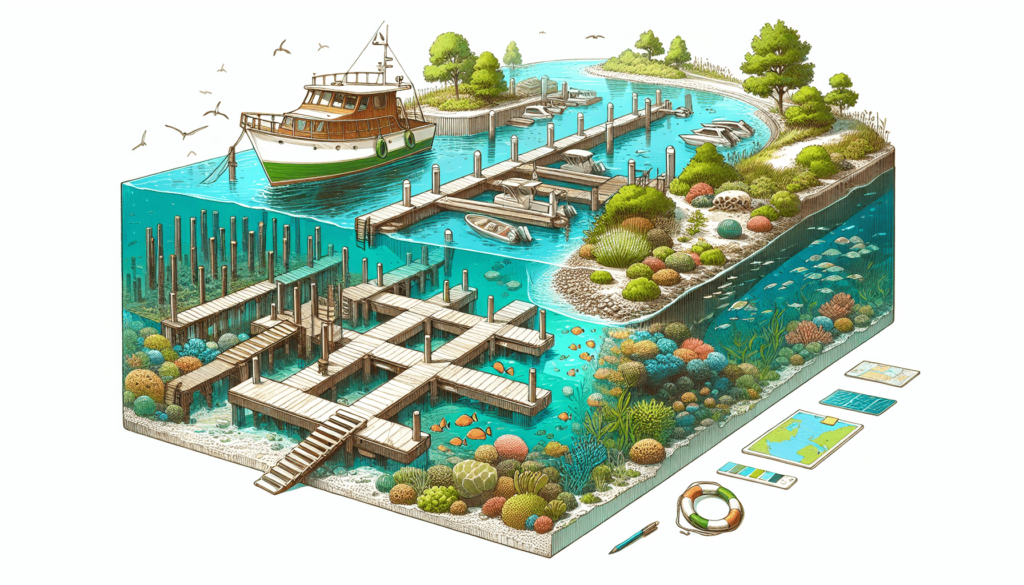
Understanding Environmental Impact of Boating Activities
The world of boating opens up a sense of freedom and adventure, but it also comes with potential effects on the environment that most boaters might not think about normally. As a responsible boater, it’s essential that we deepen our understanding of the environmental impact of our boating activities.
Impact on water quality
The first noticeable impact of boating activities can be seen on water quality. Both fresh water and marine systems can be greatly affected by pollution from boats, specifically through oil leakage, fuel spills, and the dumping of waste products, which can substantially degrade water quality.
Effect on marine fauna
Boating activities may inadvertently be disruptive to marine fauna. The propeller motions, boat anchors, and hull bottom paints might damage delicate habitats like seagrass meadows and coral reefs. The marine animal life from tiny planktons to whales get tremendously affected by this disturbance in their ecosystems.
Contribution to global warming
Boats, like any other fossil fuel-powered conveyance, contribute to global warming. The burning of fossil fuels releases greenhouse gases into the atmosphere, including carbon dioxide, a major contributor to climate change. In some cases, the release of unburned fuel directly into the water bodies can be an environmental stressor as well.
Erosion from boat wake
Erosion is a slow but consistent and damaging process caused primarily by the boat’s wake. The waves made by the movement of boats can significantly erode shorelines over time, gradually destroying habitats and increasing the sediment load in the water.
Noise pollution
The noise generated by boats is often overlooked in terms of its environmental impact. However, noise pollution can interfere with the communication of aquatic species, disrupt their feeding and breeding patterns, and even drive them away from their habitats.
Preventative Boat Maintenance
A regularized preventive boat maintenance routine can help lessen the environmental burdens of boating. Preserving the ecosystem should be a top priority for any boater.
Regular Cleaning to avoid marine hitchhikers
Marine species can easily hitch a ride on your boat, threatening ecosystems by entering non-native waters. Regularly cleaning your boat, especially the hull, can help avoid transporting these unwanted hitchhikers.
Proper engine maintenance
An oil leak or a fuel spill can be constrained substantially with proper engine maintenance. Routine checkups can help detect potential leaks or spills at an initial stage, ensuring that your boat’s engine operates in an environmentally responsible way.
Anti-fouling options
Anti-fouling paints are used to prevent the accumulation of organisms on the hull of your boat. However, many of these products are toxic to both humans and aquatic life. Opt instead for environmentally friendly anti-fouling options available in the market today.
Use of Non-toxic Cleaning Agents
Many cleaning agents contain chemicals harmful to aquatic life. Alternatively, there are non-toxic cleaning agents for boating equipment that are made from natural ingredients.
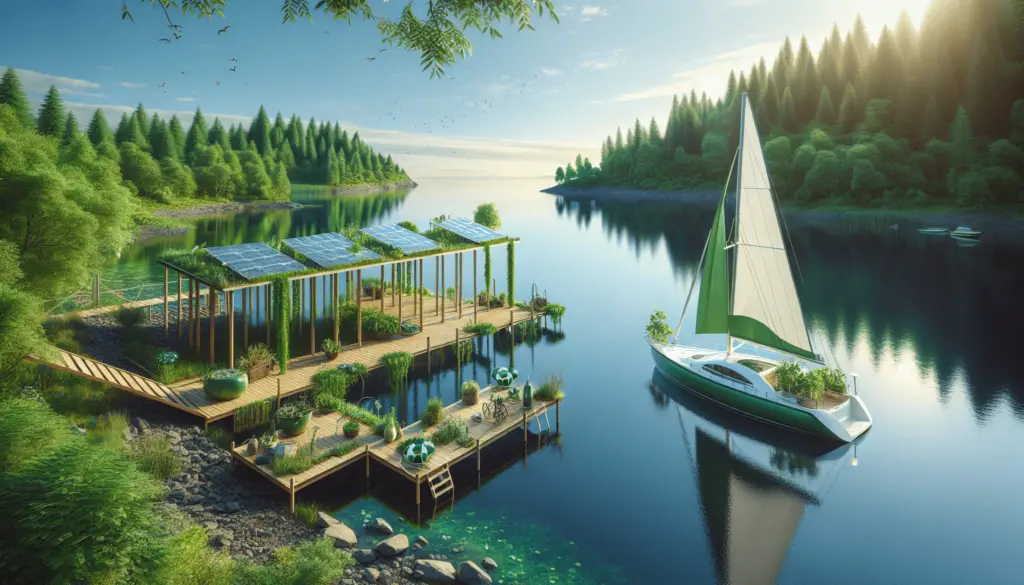
Fuel Efficiency Strategies
Being fuel-efficient means producing fewer emissions, and this is achievable through smart boating strategies.
Ideal cruising speed
Maintaining an ideal cruising speed is crucial to fuel efficiency. Running at full throttle can decrease fuel efficiency and increase your carbon footprint.
Smart navigational plans
Smart navigation involves preplanning your route to avoid getting lost or caught in bad weather, thereby saving fuel and reducing emissions.
Trim Tab Adjustment
Appropriate use of trim tabs can reduce drag and, in turn, improve fuel efficiency. By adjusting your boat’s trim tabs, you ensure it runs smoother and burns less fuel.
Proper use of dock and shore power
Using dock and shore power when available can save fuel and reduce carbon emissions. This is especially true for large boats that consume a lot of fuel.
Responsible Waste Disposal
A big part of being an eco-friendly boater is ensuring that you dispose of your waste responsibly.
On-board waste management
Having an effective waste management system onboard can significantly minimize pollution. This involves setting up proper waste segregation and implementing proper waste disposal practices.
Proper disposal of used oils and chemicals
Proper disposal of used oils and other chemicals is another vital aspect of eco-friendly boating. It keeps harmful substances from polluting our oceans and lakes.
Dealing with garbage and recycling
Never throw garbage overboard. Have a dedicated bin to stow it, and dispose of it responsibly once you’re back on land. Moreover, try to recycle as much as you can.
Avoiding plastic waste
Reducing your plastic waste can have a significant impact on the quality of our oceans. Opt for reusable containers and avoid single-use plastics to help reduce ocean pollution.
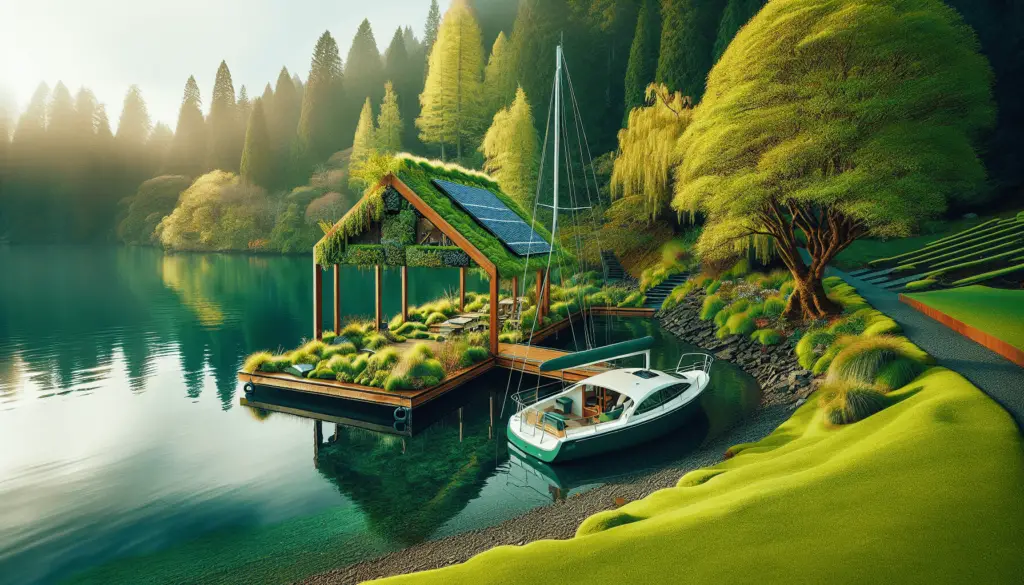
Reduced Energy Consumption
Reducing energy consumption not only lowers harmful emissions but also potentially decreases running costs.
Maximizing natural ventilation and light
To minimize energy consumption, maximize the use of natural light and ventilation. Design elements like large windows, skylights, and open layouts can help in this regard.
Use of efficient appliances
Energy- and water-efficient appliances significantly reduce energy consumption and lower your boat’s environmental impact.
Alternative energy sources for boat
Alternative energy sources, such as wind turbines or solar panels, can be used to generate electricity on the boat, thereby helping reduce dependency on fossil fuels.
Reducing phantom loads
Phantom loads, or the electricity consumed by appliances when they’re turned off but still plugged in, can account for a significant portion of your boat’s energy consumption. Unplugging appliances when they’re not in use can help minimize this.
Environmentally Friendly Docking
Eco-friendly docking involves a few key considerations. While docking, always remember that protecting the local habitat and water quality is of paramount importance.
Use of eco-friendly docking materials
Choose docking materials that do not leach chemicals into the water or create other forms of pollution. Non-toxic and recycled materials are a good choice.
Proper docking procedures
Careless docking can damage the delicate flora and fauna in the water. Make sure to learn and follow the proper procedures of docking to minimize your impact.
Docking at environmentally responsible marinas
Choose to dock at marinas that have adopted environmentally-friendly practices. They manage their resources efficiently and have regulations in place to minimize pollution.
Sensitive areas and no-anchor zones
Care should be taken not to anchor in sensitive areas where there are severe impacts on habitats and species. Respecting no-anchor zones can preserve ecosystems.
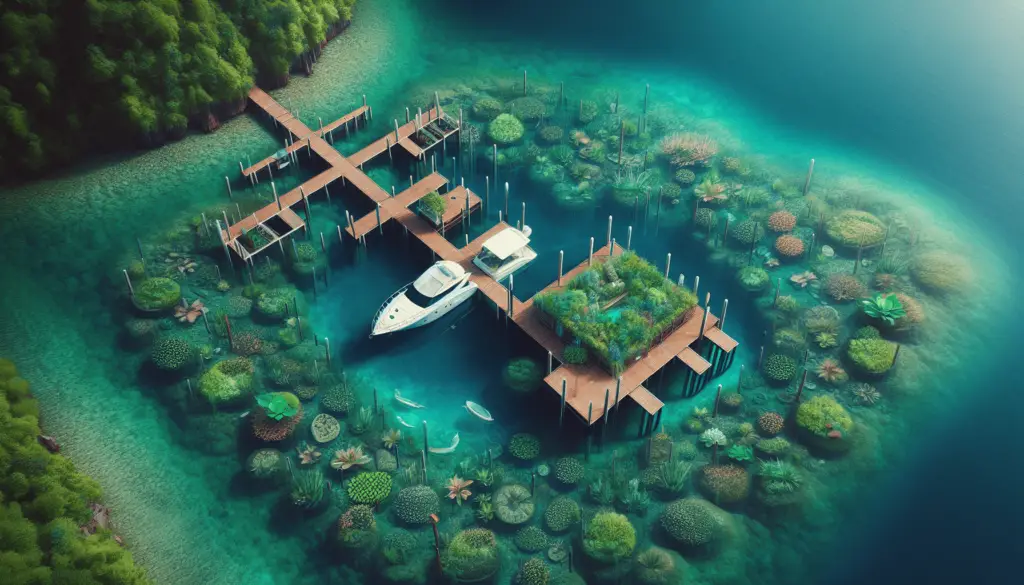
Considerations When Launching a Boat
Various considerations need to be made when launching a boat, many of which can significantly reduce the environmental impact of your outing.
Checking for invasive species
Before launching, check your boat and trailer thoroughly for invasive species, such as weeds or mussels, and remove them. This can prevent the spread of harmful organisms to new locations.
Pollution-causing practices to avoid
Steer clear from practices such as dumping waste or unwanted bait into the water, as they contribute significantly to pollution levels and can disturb the local marine life.
Using public launching ramps
Public ramps are often located in areas that have a lower environmental impact. They also have facilities in place for managing pollution, such as waste bins or cleaning stations.
Appropriate places to launch boat
Always launch your boat in designated areas to prevent accidental damage to local habitats. These areas provide the least impact on the environment.
Eco-Friendly Choices for Boating Equipment
Eco-friendly boating gear can greatly lessen your environmental impact.
Using sustainable boating gear
When choosing boating gear, opt for sustainable products. Not only can you lessen your carbon footprint, but you also help demand green products in the market.
Choosing eco-friendly appliances and fittings
Eco-friendly appliances and fittings use less energy, reduce emissions, and in many cases, are built to last longer than their non-green counterparts, which means less waste in the long run.
Eco-friendly bottom coatings
While it’s important to coat the bottom of your boat to prevent marine growth, consider choosing eco-friendly alternatives that do not harm marine organisms and water quality.
High-efficiency engines
High-efficiency engines reduce fuel consumption and emissions. They are a great investment for those who are serious about green boating.
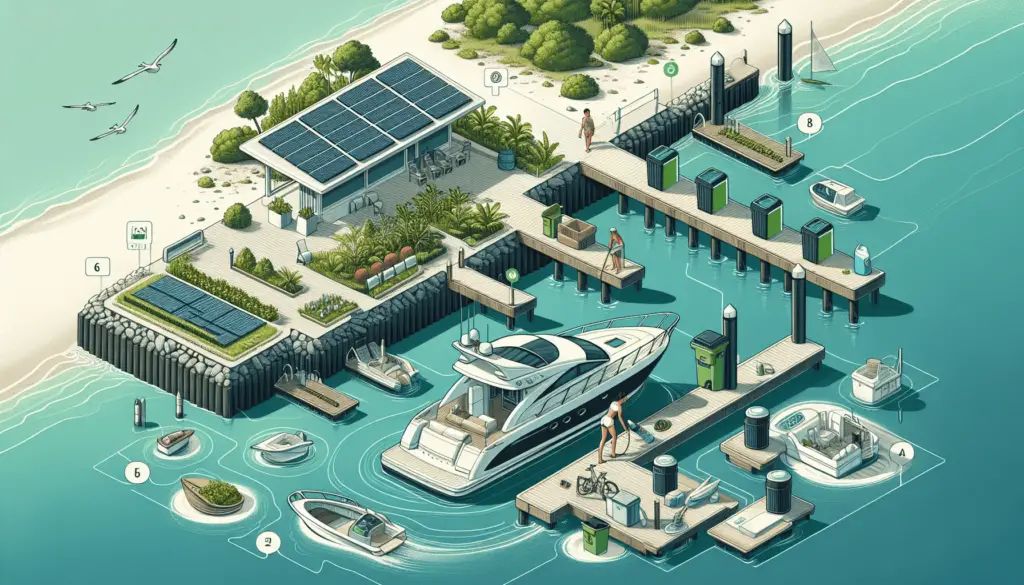
Educating Yourself and Others
Knowledge is power in the journey towards environmentally-friendly boating.
Taking up eco-friendly boating courses
Signing up for eco-friendly boating courses is a great way to learn about best green practices. These courses cover everything from fuel-saving techniques to waste management.
Educating friends and family
As a responsible boater, educate your fellow boaters, friends, and family about eco-friendly practices. By spreading awareness, you can help protect our water bodies and marine life.
Joining environmental boating community
There are many environmental boating communities out there that showcase best practices, share the latest news, and organize clean-up activities. Join such communities and engage actively.
Staying updated about regulations
Ensure that you’re always updated about the latest regulations in your area. Complying with these regulations is not only legal but also often designed to mitigate environmental impacts.
Emergency Situations and Environmental Responsibility
Even in emergency situations, protecting the environment should be a priority.
Proper handling of fuel and oil spills
In the event of a fuel or oil spill, it’s crucial to handle it carefully to avoid doing extensive damage to the water and the organisms living in it.
Use of eco-friendly safety gear
Safety equipment can be eco-friendly too. Things like lifejackets, signals, and ropes can be made from recycled or sustainable materials.
Environmental considerations in salvage operations
During salvage operations, take steps to limit oil spills, chemical leaks, or other forms of pollution. Use eco-friendly materials to protect the water and marine life.
Safe and eco-friendly rescue operations
When carrying out rescue operations, always consider the potential environmental impacts. Use the least destructive methods possible, and remember to clean up after.
In conclusion, remember that the more people take mindful actions, the greater the cumulative positive effect on the environment. Always aim to leave the smallest footprint you can when out boating, and remember, others may follow in your wake, literally and figuratively!

